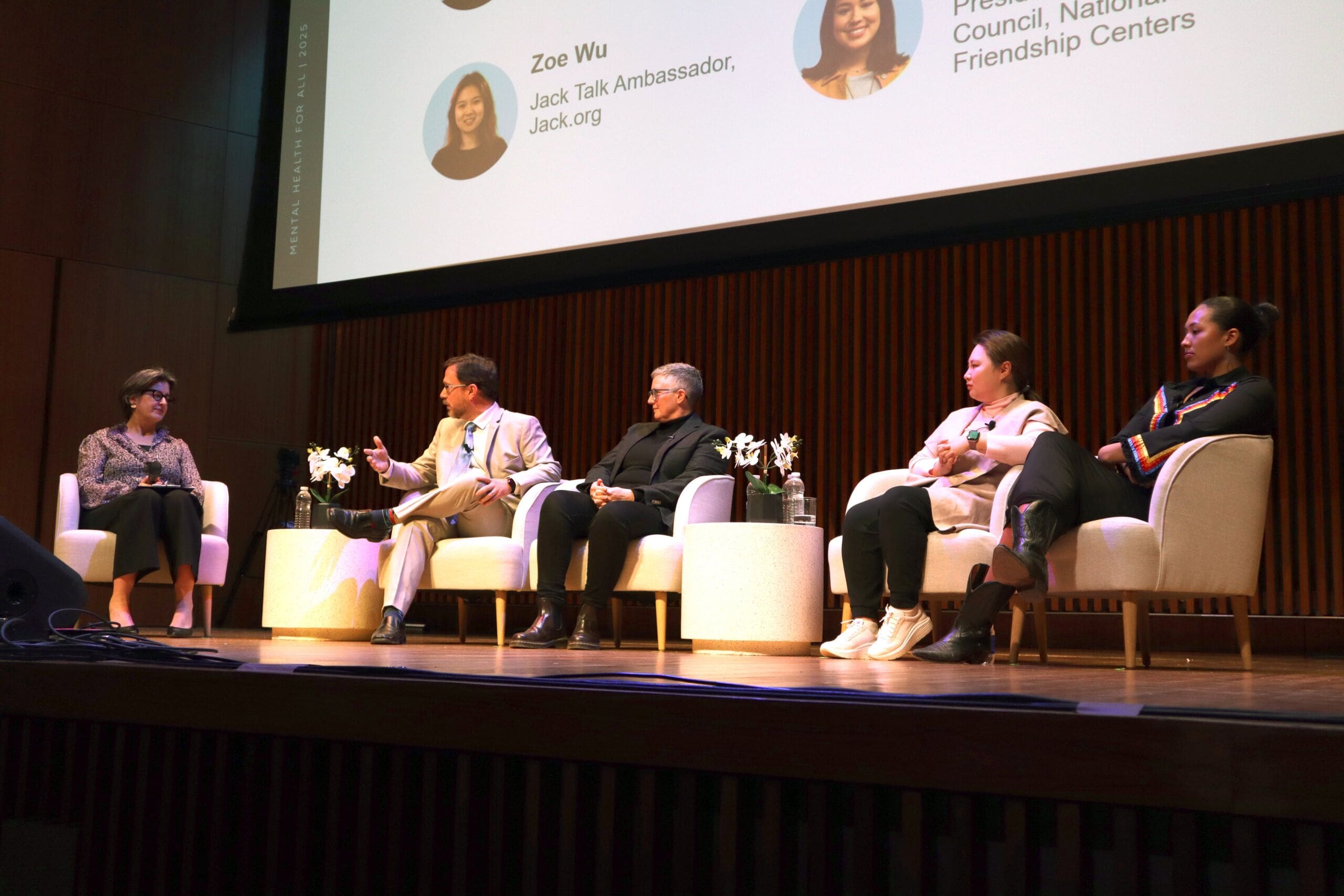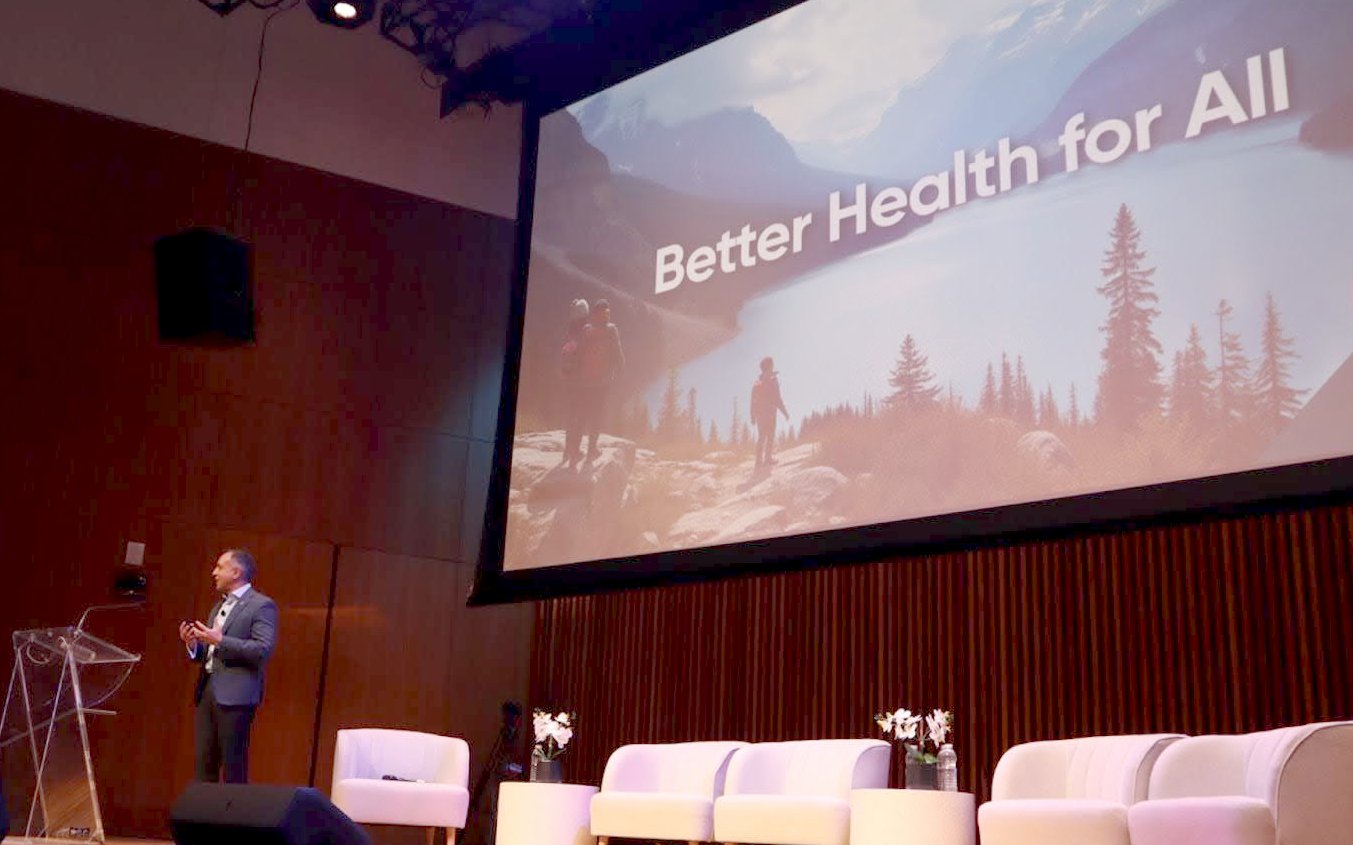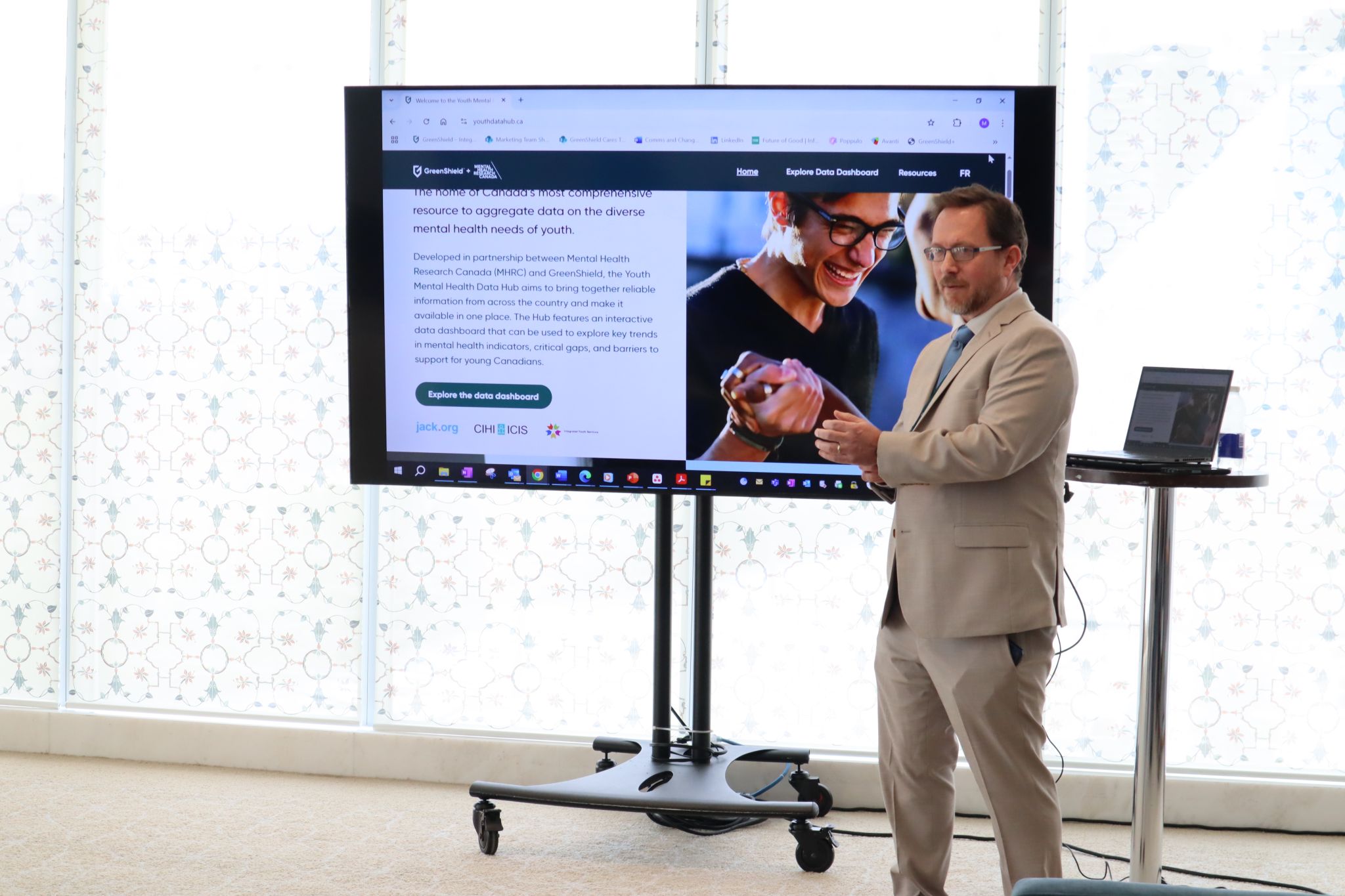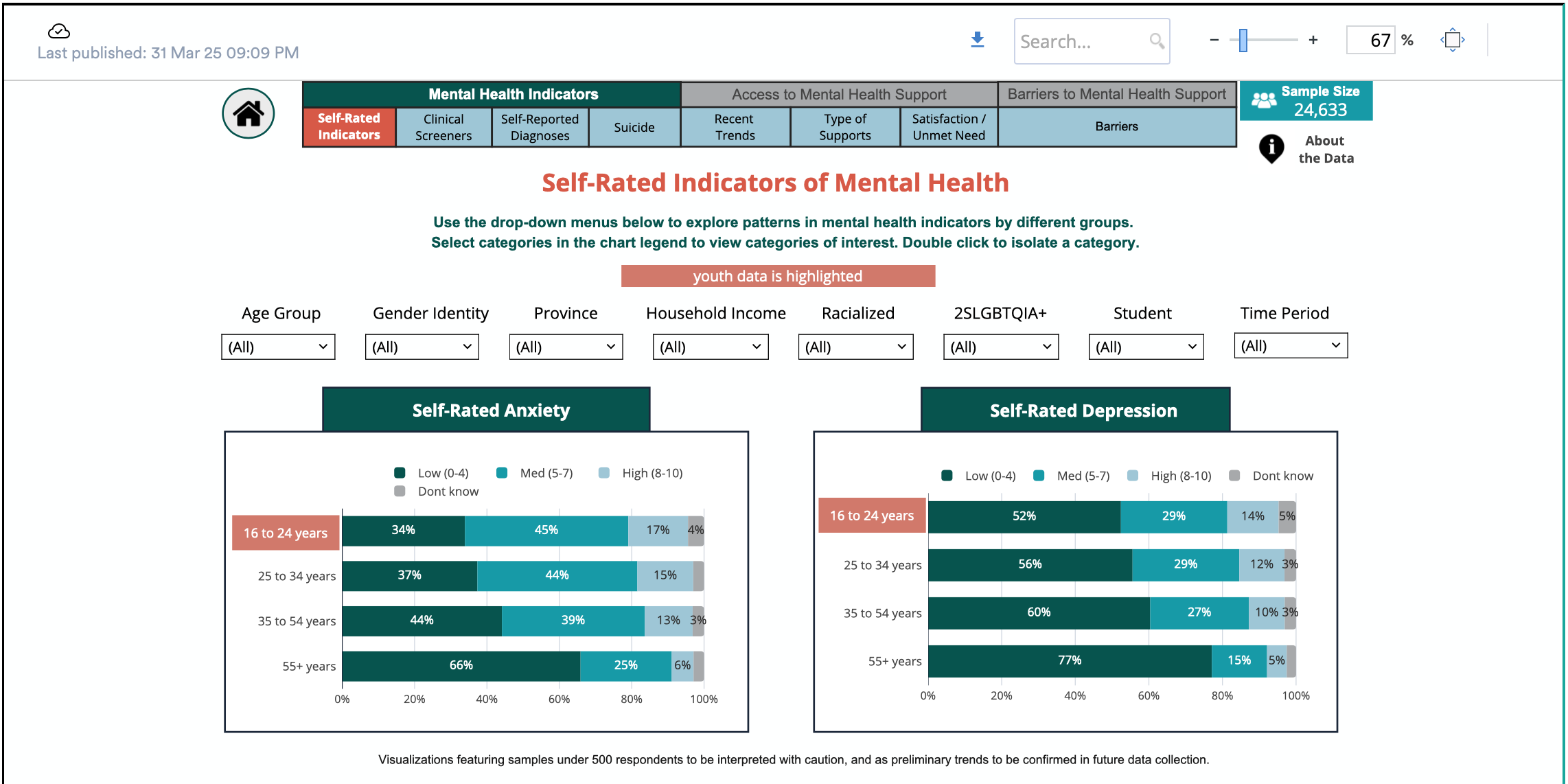More than one million Canadian youth need mental health help. How data sparked GreenShield to action
Why It Matters
It’s difficult to design programs and resources without solid data - and youth mental health data is almost non-existent in Canada.

This story has been made possible thanks to the generous partnership and support of Greenshield. Read our editorial ethics and standards here.
More than 1.25 million Canadian young people say they need mental health help, but fewer than half are getting the help they need.
The alarming trend has escalated rapidly over the past five years, prompting GreenShield, Canada’s only national non-profit health and benefits company, to recognize the urgent need for action.
The non-profit announced its Youth Mental Health Initiative, which aims to transform how young people’s mental health is supported in Canada.
GreenShield is working to bridge gaps and ensure young people have access to the care and resources they need to thrive.
“As a non-profit, GreenShield is committed to tackling Canada’s most pressing health challenges with data-driven solutions that advance our mission of Better Health for All,” said Zahid Salman, president and CEO of GreenShield.

“As a purpose-driven company, we have a responsibility to close the gaps in youth mental healthcare, and that starts with data,” he said.
The data shows young Canadians aged 16-24 are disproportionately affected by mental health challenges. Despite growing awareness, GreenShield’s Mandy Mail recognized that solutions often fail to address the full scope of youths’ diverse needs.
“We are committed to turning those insights into lasting change to improve youth mental health, because everyone deserves access to the care they need,” said Mail, executive vice president of Greenshield Cares.
Launch of a first-of-its-kind tool
With that in mind, in partnership with Mental Health Research Canada (MHRC), they created the Youth Mental Health Data Hub. This publicly available dashboard analyzes youth mental health across social and demographic factors.
The launch of the Data Hub is the first step for GreenShield’s Youth Mental Health Initiative, which it says will ensure young people have access to culturally appropriate, timely care.
The goal is to move beyond awareness of the troubling statistics and take meaningful, measurable action.
“There are various studies about the rapid decline of youth mental health in Canada, but the data is often scattered and not easily accessible,” said Michael Cooper, vice president of MHRC.

“It’s the first collaborative effort of its kind that provides a macro lens,” said Cooper.
“It looks at all youth, youth not accessing services who should be accessing service, and youth who are diagnosed and are in a significant need of mental health supports.”
The website launched during Greenshield’s Mental Health for All event earlier this month. It focuses on turning awareness of the data into action. More than 300 changemakers came together to explore meaningful ways to support and advance the mental health of Canadians.

“We have been looking into the data and really understanding where the needs truly are,” added Mail.
The Data Hub is GreenShield’s first step in creating a clear picture of what young people need to get the proper support. It features an interactive dashboard that allows users to select various mental health indicators and barriers to support for young Canadians.
The Data Hub is a free tool that allows users to select an age group, gender identity, location, household income, and whether they are racialized, students, or 2SLGBTQIA+.

The goal is to help policy-makers make informed decisions about mental health support for young Canadians.
“Then, we wanted people to be able to go to partner organizations that would enable them to actually look at those little stories that are happening so you can understand what youth who are in significant need actually are doing,” said Mail.
“We thought, ‘How do we integrate things to make it easier for Canadians to live their healthiest lives? And how do we do that both on the data side and on the solution side?” said Mail.
She said Canadians spend two and a half times more time navigating their health benefits and healthcare services than actually going to the doctor.
“We want to flip that. So, we have integrated all of our healthcare services and our benefits into one application.”
The Data Hub is the first resource to unite Canada’s leading youth mental health datasets.
More than 25,000 Canadians were surveyed to collect the information, which, according to MHRC, will continue to be updated each quarter.
Cooper said there has not been a strong commitment to data at the centre of decision-making. But he hopes this centralized resource will change that.
“I do fulsomely believe that there is a mental health crisis brewing among youth,” Cooper said.
Collecting the data will help provide policymakers with a more comprehensive understanding of the diverse supports required, he said, emphasizing that youth mental health is “not a monolith.”
About 18 per cent of racialized youth can’t find culturally sensitive care, according to the data hub, and 30 per cent of students can’t afford mental health support.
“We have to invest our money into areas of greatest need, and you can’t do that unless you know where the areas of greatest need are. The idea is that we’ll be able to make better decisions going forward.”
Creating a better future for everyone
Those informed decisions aim to build a future with healthier Canadians.
A deeper insight into Canada’s mental health landscape lays the groundwork for thoughtful, evidence-based policymaking.
“If you can make a change and a difference in someone’s life in their youth, you’re changing it forever. You’re changing the entire country. You’re changing the economy,” said Mail.
The Youth Mental Health Data Hub will act as a catalyst for creating stronger, data-driven decisions.
“When I talk to GreenShield about this in a substantive way, it’s not just making sure we direct services to the people who need it the most,” said Cooper.
“It’s about making sure we’re using data so those services are as effective as they possibly can be, because we can’t afford to have wasted resources in this space.”

